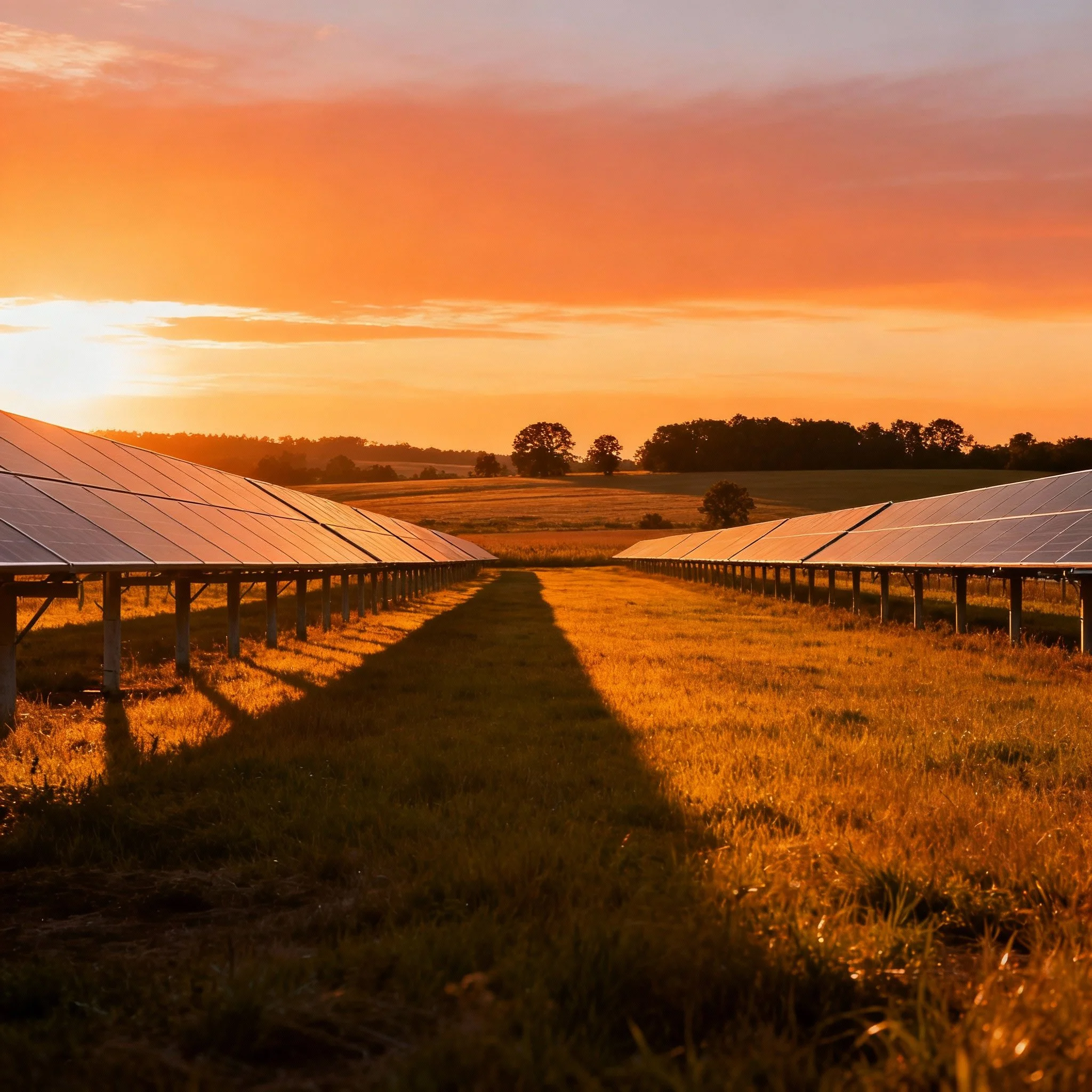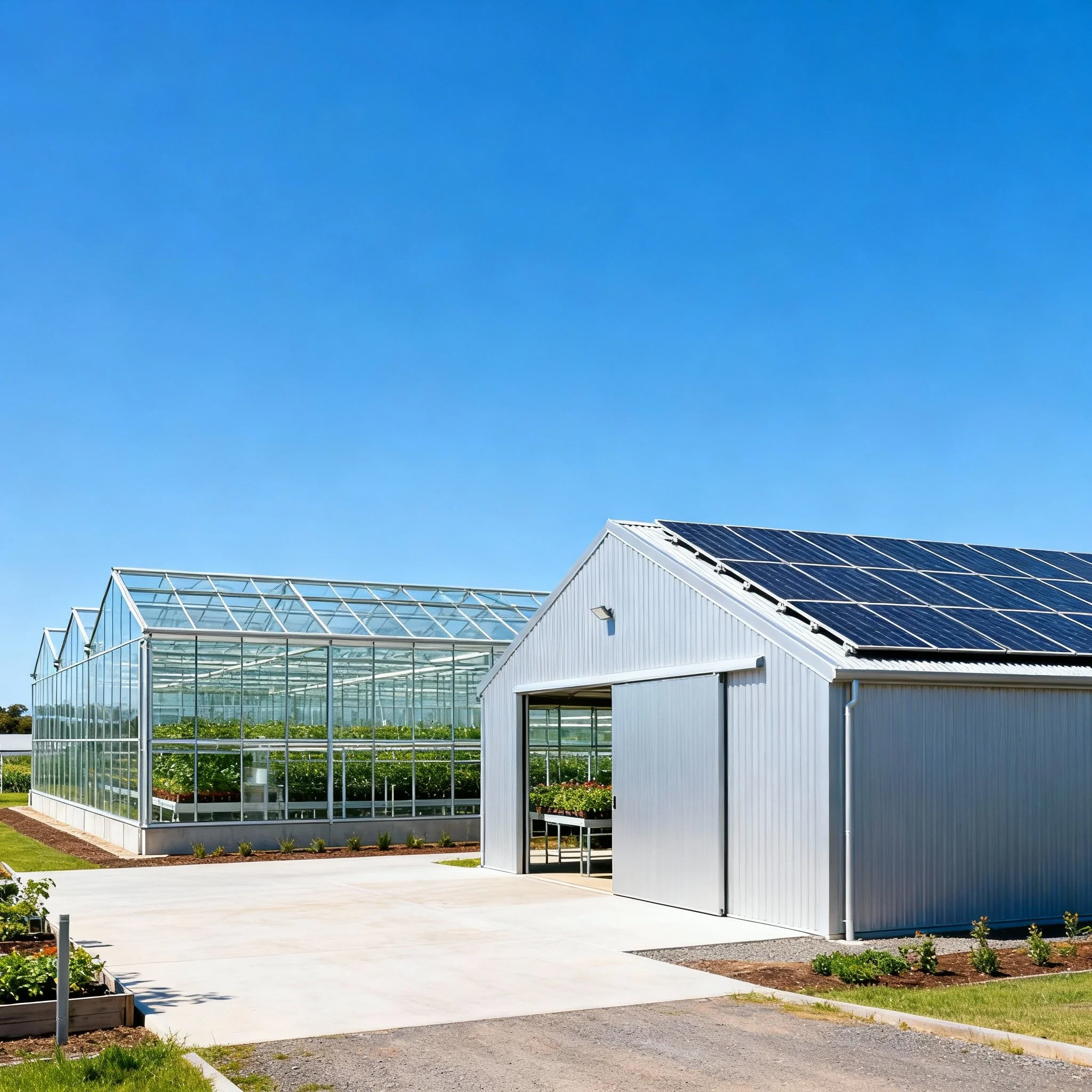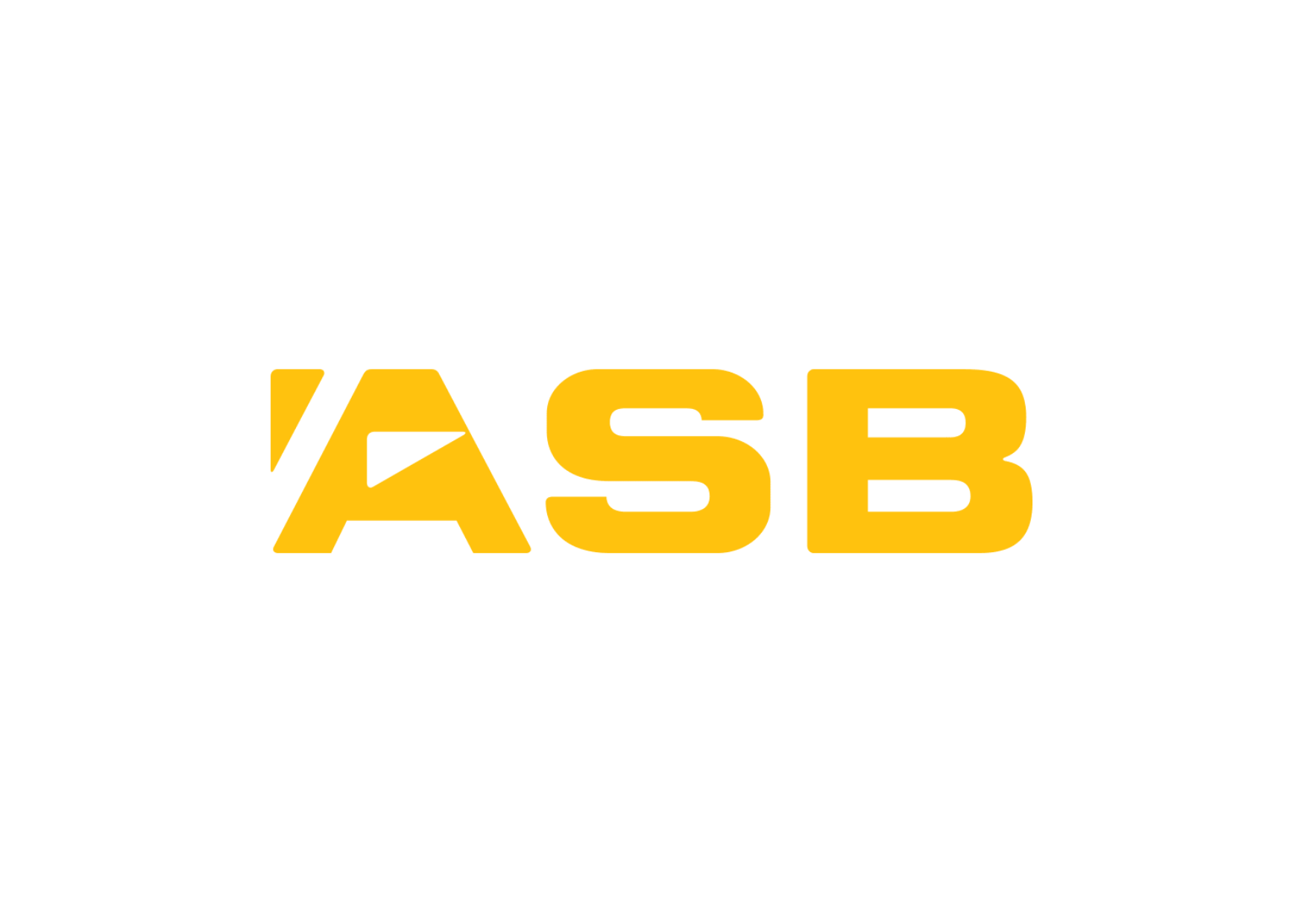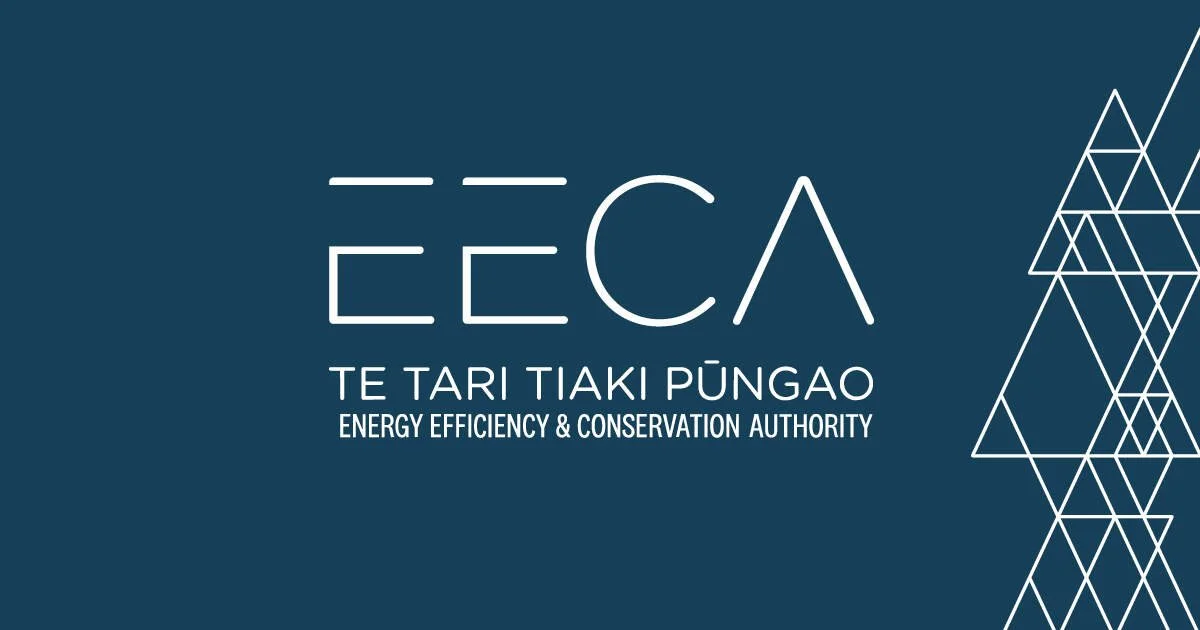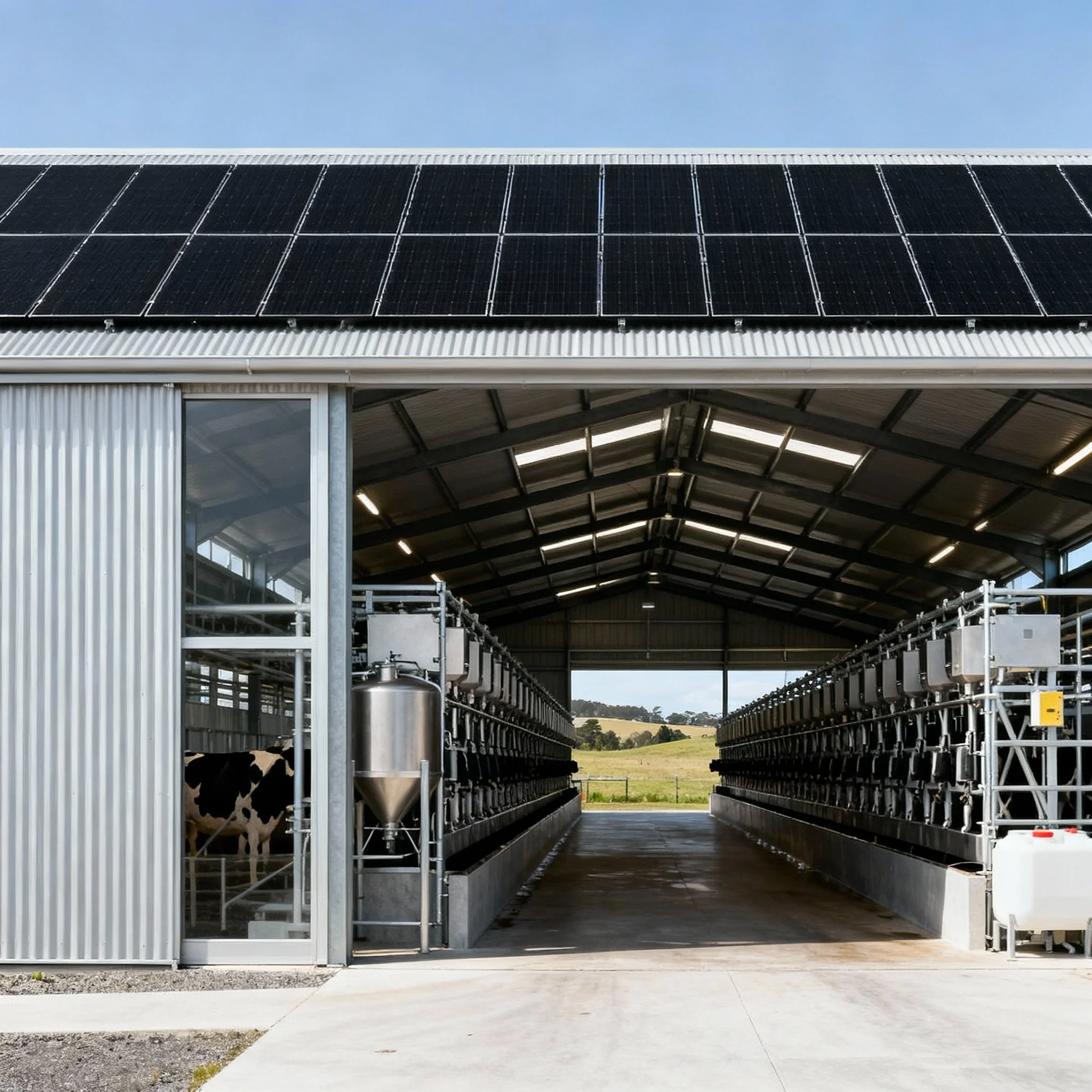
Solar on Farms
Sustainable Power for New Zealand’s Rural Industries
Sustainable Power for Sustainable Farming Futures
Solar energy is a smart investment for a wide range of agricultural businesses, offering both immediate and long-term benefits. By harnessing the sun’s power, farms, vineyards, horticultural enterprises, crop producers, poultry operations, and more can significantly lower their electricity costs and shield themselves from the risk of rising power prices.
Modern solar systems deliver dependable, low-maintenance energy to run essential equipment—including irrigation pumps, refrigeration units, grow lights, climate control systems, and feeding machinery—helping agricultural operations work more efficiently with less downtime or reliance on the utility grid.
Over the years, the savings on energy expenses can result in a strong return on investment and an increase in property value.
Embracing solar technology also signals a commitment to sustainable practices and environmental stewardship, which are increasingly valued by buyers, retailers, and business partners. With solar power, agricultural businesses gain greater control over their energy future, reduce vulnerability to grid disruptions, and actively contribute to a cleaner, more sustainable rural economy.
Boosting Business Profitability
Investing in solar energy for agriculture offers strong returns on investment (ROI) by reducing long-term electricity costs. Farmers can offset high energy bills for irrigation, processing, and storage while generating additional revenue through net metering or selling excess power. Over time, solar panels typically pay for themselves within 5–7 years, providing decades of low-cost, predictable energy and improving farm profitability.
Energy Resilience
Solar power enhances energy resilience by reducing reliance on the grid and protecting farms from power outages and fluctuating fuel costs. Paired with battery storage, it ensures continuous operation of critical systems like irrigation pumps and refrigeration. This reliability is especially vital in rural areas, where infrastructure failures or disruptions can threaten productivity and crop preservation.
Sustainability and Environmental Impact
Solar adoption in agriculture reduces greenhouse gas emissions and decreases dependence on fossil fuels, aligning farming practices with sustainable development goals. By lowering the carbon footprint and preserving natural resources, farms gain long-term environmental credibility. Sustainable energy solutions also boost market competitiveness, as consumers increasingly value eco-friendly and climate-conscious food production.
Unlocking farm cost savings and resilience
Solar power, battery storage, and smart energy systems are now practical and reliable options for powering farms and growing operations. By generating your own renewable energy, you gain greater control over energy use, improving efficiency and productivity across your operation.
The Solar on Farms initiative is designed to provide farmers and growers with the support and trusted expertise they need to harness solar and battery solutions. The result: lower energy costs, stronger resilience, and long-term energy security for a more sustainable future.
Apply for funding
Please read the 'information for applicants' document first. To complete the form you’ll need a quote from an installer, a recent electricity bill and annual usage data, and other information about your farm.
Solar on farms – demonstration fund
Open for applications
Until 30 October 2025 (or fully allocated)
Investment requirement
Minimum $10,000 (indicative only)
-
To reduce your energy costs and improve the energy resilience of your farming operation, and play a part in supporting the uptake of solar on a wide range of farm types across New Zealand.
-
You may be eligible if you are a farmer or grower, and meet the following criteria:
New Zealand based and have a New Zealand Business Number (note that only one application will be considered per business — including those operating under the same holding company).
Can feasibly install both solar PV and a battery storage system (or battery only where solar is already installed) by 30 June 2026.
Currently pay a levy to an industry organisation such as DairyNZ or Beef and Lamb. Non-levy paying farms such as poultry meat growers must be able to show you are a commercial/contract grower.
Agree to share your experience, learnings and real time energy use data with EECA and the farming sector (in accordance with the Privacy Act 2020).
You have not been the subject of successful prosecutions relating to health and safety, animal welfare, or noncompliance with Regional or Unitary Council requirements for the past 5 years.
The type of farm is included in the EECA list of farm types (see below).
-
Funding will be available for up to 40 farms across 10 different farm types, to form a representative demonstration group across New Zealand.
The number of successful applicants within each farm type, and their location, will be proportionate to their actual distribution.
Farm types that are included
Dairy farming
Sheep & beef
Arable (grains and crops)
Horticulture (fruit and vegetables)
Pig farming
Poultry farming
Plant nursery/floriculture
Wine/viticulture
Other livestock (deer, horses etc.)
A combination of the above.
Farm types that aren't included
Lifestyle farms
Non-farming entities
Utility scale solar farms (above 500kW)
Government organisations — view the full list(external link).
-
Get installer quote
As part of your application, you will be required to submit at least one itemised quote from a qualified installer, meeting the system requirements.
Submit your application
If eligible, submit your application for funding (see below).
Applications will be assessed as they are received, and evaluated based on farm type, region, and system size.
Install your system
If you are successful you will need to complete your system installation by 30 June 2026.
The installation process is arranged between you and your installer.
Share your learnings
Your learnings and energy data will be shared with us to inform resources for the wider sector — demonstrating the potential for solar PV and battery storage in a real farming context.


